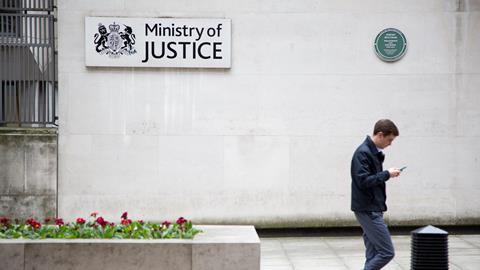The Ministry of Justice has responded to its consultation ‘Civil legal aid: Towards a sustainable future’. In it, the MoJ makes a refreshing promise: to transform legal aid so that providers are less burdened by bureaucracy, and users’ needs are better met.

The response sets out the government’s first steps in meeting that promise, most notably an increase in fees paid for housing and immigration legal aid work. Although they go in the right direction, the first steps highlight the scale of reform needed if government is to successfully transform legal aid for the better.
Higher fees
The MoJ’s consultation response confirms that expenditure on housing and immigration legal aid fees will increase by 24% and 30% respectively. The rates will increase to a new minimum, or by 10% - whichever is more.
Any increase would be welcome in the legal aid market. This will be the first in nearly thirty years. The state of the market is such that few lawyers still do legal aid work and people are routinely denied access to justice.
In housing and immigration, the government is relying on legal aid lawyers to deliver its core priorities: to make real their new renters’ rights; and to make possible a streamlined asylum process. Yet, on its own, this fee increase is not enough to secure a sustainable future for legal aid.
1. The new fees are still too low
As compared with when the rates were set, the increase falls well short of inflation. Almost all of the 30% of respondents who disagreed with the proposed rates said that they were too low; and even among the 49% who agreed with the proposal, 30% felt it not enough.
The MoJ argues that its purpose in raising the rates is not to restore fees’ value. Rather, it is to enable legal aid providers to make a profit against the estimated current costs and thereby encourage new entrants to the market.
But, to make this estimate, the MoJ has used research commissioned by the Law Society into the costs of providing housing and family legal aid services – which did not assess costs for immigration providers. It reflects costs which are kept at an unsustainably low level, which are accordingly likely to increase as fees do. Research by Dr Jo Wilding supports this, suggesting that immigration providers will have to use all of the extra money to retain existing staff.
The MoJ cannot be certain, therefore, that the rates chosen will enable new profits and market entrants. As a result, it will be necessary for the MoJ to monitor the increase’s efficacy in securing access to justice, and to consider whether further increases are needed.
2. Providers often won’t receive the new hourly rate
The retention of fixed fees means that many cases will, in practice, be remunerated at a much lower rate. Where fees are fixed, providers are usually paid the same irrespective of time spent on a case (unless the case meets certain set criteria for having required an exceptional amount of work). The MoJ says that its aim in setting fixed fees is to ensure that, over time, the average amount providers receive through fixed fees is the same had they been counterfactually paid through hourly rates. In practice, providers more often make a loss as compared with the counterfactual. To ensure providers are fully remunerated for their work, the MoJ should abolish the fixed fee.
3. Rates stay low for other categories of law
All other categories of law will be paid at the same, unsustainably low rate. Even if one accepts the MoJ’s contestable claim that housing and immigration are areas with highest unmet need for legal aid, it is clear that providers in other areas cannot continue loss-making work long-term. In the initial consultation, the MoJ suggested that rate increases for other areas were being considered in the context of the spending review – but the spending review has since concluded, and no such announcement has been made.
Remote advice proposals
The MoJ also consulted on changes to contractual requirements that were intended to make it easier for providers to do work remotely in parts of the country where they do not have an office presence (such as in legal aid ‘deserts’). The response does not confirm whether the MoJ will implement their proposals.
If they are to, then the MoJ ought to consider the mixed impact of remote advice identified in Dr Jo Hynes’s recent PLP report. On the one hand, the flexibility of remote advice can be useful for short consultations, where clients prefer or need it and can make an informed choice. On the other hand, remote provision is not suitable for all clients and can make it difficult for individuals to trust in their solicitor and describe the sensitive details of their case.
Increasing the incentive to conduct cases remotely risks sidelining the need to take proper account of a client’s individual needs for the cost-efficient appeal of delivering services remotely. Providers are already under intense commercial pressure, and their viability might be improved by ‘cherry-picking’ simpler cases from a geographically wider pool. Therefore, if the MoJ is to implement these changes, they will need to be accompanied by stringent safeguards to give clients a real choice about how they access services.
What’s next?
The MoJ’s transformative ambition is welcome, but their first steps do not meet the scale of the legal aid crisis. The MoJ must go further to safeguard the public service that Britain’s legal aid lawyers provide. Or else, those who rely on legal aid to escape hardships such as destitution, persecution, and abuse will have nowhere left to turn.
PLP’s full consultation response is available here.
Joseph Summers is a researcher at Public Law Project
































1 Reader's comment